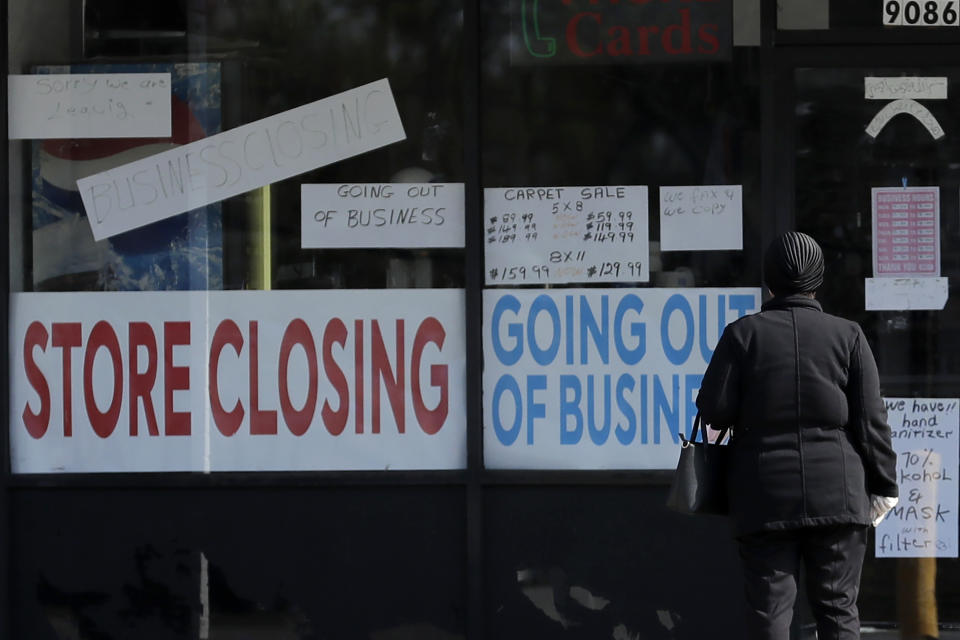Coronavirus: Global leaders fear 'prolonged' recession and mass unemployment

Global business leaders fear the legacy of the COVID-19 pandemic will be a “prolonged global recession” and mass unemployment.
The World Economic Forum (WEF) on Tuesday published a new report examining the medium and long-term risks posed by the COVID-19 pandemic. The report was based on a survey of 350 “senior risk professionals” spanning industries from banking to retail.
It found businesses leaders across the world fear long-lasting dire economic consequences as a result of the pandemic.
68% said they expected a “prolonged” global recession. 56.8% said a wave of bankruptcies were likely and 49.3% expect to see high unemployment, particularly among young people.
Read more: 'War-time level deficits' as UK faces £337bn COVID-19 bill
Unemployment has already spiked globally, reaching over 36 million in the US, and economic growth has turned to contraction as lockdowns have brought societies to a halt.
Many economists had hoped to see a “V” shaped recovery, with a quick bounce back in jobs and growth. However, optimism has faded as the crisis has continued, with data showing a worse-than-expected impact on most major economies.
International Monetary Fund head Kristalina Georgieva said on Monday it would take “much longer” for the global economy to recover than initially expected. Christian Nolting, global chief investment officer, Deutsche Bank Wealth Management, said last week the bank does not expect global output to return to pre-coronavirus levels until 2022 at the earliest.
The slow recovery is likely to leave lasting economic “scars” on countries around the world, WEF warned.
“A build-up of debt is likely to burden government budgets and corporate balances for many years, global economic relations could be reshaped, emerging economies are at risk of submerging into a deeper crisis, while businesses could face increasingly adverse consumption, production and competition patterns,” wrote the WEF report authors.
Peter Giger, group chief risk officer at Zurich Insurance Group, which helped put the report together, said the world risked “another lost generation”.
“The pandemic will have long-lasting effects, as high unemployment affects consumer confidence, inequality and well-being, and challenges the efficacy of social protection systems,” Giger said.
Read more: UK economy saw worst slump since 2008 even before full lockdown blow
Other risks identified in the report include more restrictions on the movement of goods and people between countries, which could make running businesses more costly.
There are also concerns that a growing reliance on technology, accelerated by mass working from home, could leave businesses more vulnerable to cyber attacks.
“As countries seek to recover, some of the more lasting economic, environmental, societal and technological challenges and opportunities are only beginning to become visible,” the report said.
Read more: Crisis measures to cost UK government £123bn this year
WEF warned that “years of progress” on the climate could be lost if countries lose sight of sustainability goals and cut investment.
The report called for world leaders to adopt “green stimulus programmes” to “fundamentally change the way economies and industries operate, especially as societal behaviour change may create more sustainable consumption and mobility habits.”
“Despite the grim economic outlook, the solidarity created by the COVID-19 pandemic offers the possibility of investing in building more cohesive, inclusive and equal societies,” the report said.

 Yahoo Finance
Yahoo Finance 